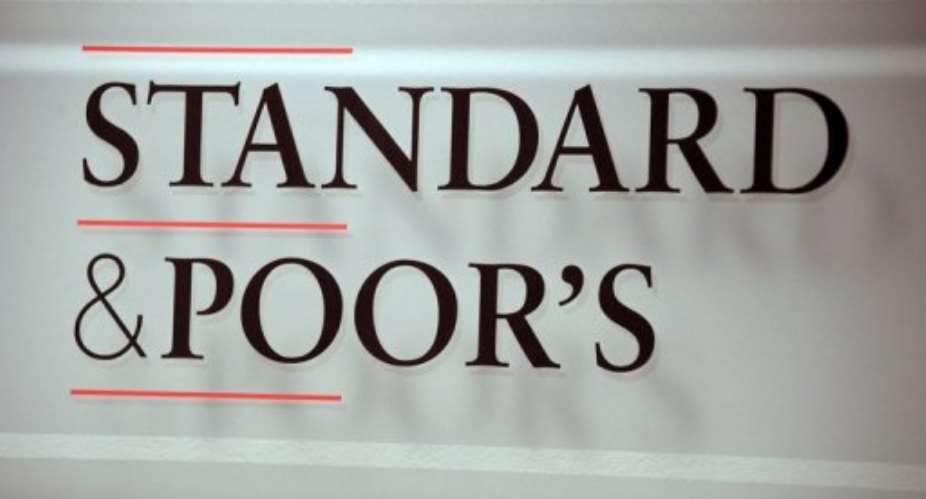CAIRO (AFP) - Standard & Poor's said Thursday it was keeping foreign and local currency sovereign credit ratings of Egypt at 'B/B' because the "outlook is negative" but it removed the ratings from CreditWatch.
The agency attributed this small improvement to the emergence of a "working relationship" between the powerful military establishment and the Muslim Brotherhood which gave rise to President Mohamed Morsi.
"In our view, this could pave the way for an improvement in medium-term policymaking," S&P said in a statement.
"We therefore project that Egypt's weak public sector finances and external position could stabilize."
But it also warned that Egypt's negative outlook could translate into another downgrade should political or social tensions flare up.
"Uncertainties remain over the authorities' political goals and the status of key state institutions," S&P said, expressing particular concern over the drafting of a new constitution and future parliamentary elections.
S&P cut its long-term ratings from B+ to B on February 10 because external financing risks had "risen significantly" and foreign direct investment "declined sharply."
It placed Egypt on CreditWatch on June 25 citing escalating tensions between the Supreme Council of Armed Forces, which took power after a popular revolt ousted Hosni Mubarak last year, and Islamist political forces.
Five days later Morsi was inaugurated becoming the country's first Islamist and civilian president. His Prime Minister Hisham Qandil formed a government early August.
In the weeks before Morsi's election, the military had assumed the powers of the Islamist-dominated parliament after disbanding it and taken control of the state budget, moves that Morsi has now reversed.
Morsi further consolidated his power this month by sacking defence minister Field Marshal Hussein Tantawi and other military generals after a militant attack in Sinai killed 16 soldiers on August 5.
The major military shake up took place without any visible resistance.
Economically, Egypt has been been hard hit by the 2011 uprising, a fall in tourism revenues, slump in foreign investment, decline in foreign currency reserves and widening of the budget deficit.
On Wednesday, the country asked for a $4.8 billion loan from the International Monetary Fund, which stressed the need for a reform programme to deal with the country's economic crisis.





 Dumsor: Mathew Opoku Prempeh has been disrespectful, he should be fired – IES
Dumsor: Mathew Opoku Prempeh has been disrespectful, he should be fired – IES
 NPP prioritizing politics over power crisis solution — PR Strategist
NPP prioritizing politics over power crisis solution — PR Strategist
 E/R: Gory accidents kills 3 persons at Aseseaso, several others critically injur...
E/R: Gory accidents kills 3 persons at Aseseaso, several others critically injur...
 Nobody can come up with 'dumsor' timetable except Energy Minister – Osafo-Maafo
Nobody can come up with 'dumsor' timetable except Energy Minister – Osafo-Maafo
 Dumsor: You ‘the men’ find it difficult to draw timetable when ‘incompetent’ NDC...
Dumsor: You ‘the men’ find it difficult to draw timetable when ‘incompetent’ NDC...
 We’re working to restore supply after heavy rains caused outages in parts of Gre...
We’re working to restore supply after heavy rains caused outages in parts of Gre...
 NPP government plans to expand rail network to every region — Peter Amewu
NPP government plans to expand rail network to every region — Peter Amewu
 Dumsor must stop vigil part 2: We’ll choose how we demonstrate and who to partne...
Dumsor must stop vigil part 2: We’ll choose how we demonstrate and who to partne...
 2024 elections: NDC stands on the side of morality, truth; NPP isn't an option —...
2024 elections: NDC stands on the side of morality, truth; NPP isn't an option —...
 Akufo-Addo has moved Ghana from 'Beyond Aid' to ‘Beyond Borrowing’ — Haruna Idri...
Akufo-Addo has moved Ghana from 'Beyond Aid' to ‘Beyond Borrowing’ — Haruna Idri...
